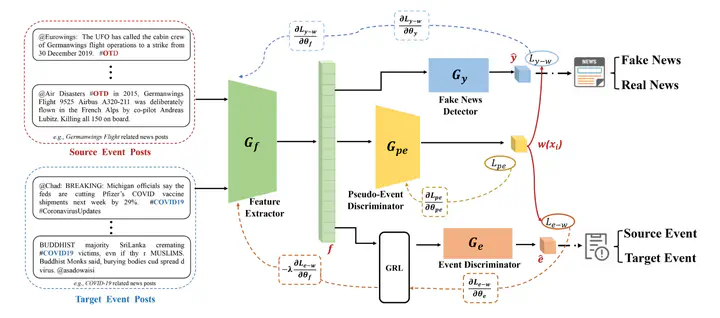
Abstract
The blooming of fake news on social networks has devastating impacts on society, the economy, and public security. Although numerous studies are conducted for the automatic detection of fake news, the majority tend to utilize deep neural networks to learn event-specific features for superior detection performance on specific datasets. However, the trained models heavily rely on the training datasets and are infeasible to apply to upcoming events due to the discrepancy between event distributions. Inspired by domain adaptation theories, we propose an end-to-end adversarial adaptation network, dubbed as MetaDetector, to transfer meta knowledge (event-shared features) between different events. Specifically, MetaDetector pushes the feature extractor and event discriminator to eliminate event-specific features and preserve required meta knowledge by adversarial training. Furthermore, the pseudo-event discriminator is utilized to evaluate the importance of news records in historical events to obtain partial knowledge that are discriminative for detecting fake news. Under the coordinated optimization among all the submodules, MetaDetector accurately transfers the meta knowledge of historical events to the upcoming event for fact checking. We conduct extensive experiments on two real-world datasets collected from Sina Weibo and Twitter. The experimental results demonstrate that MetaDetector outperforms the state-of-the-art methods, especially when the distribution discrepancy between events is significant.